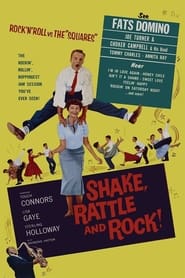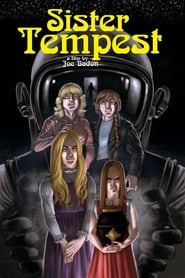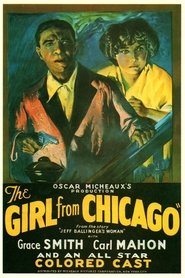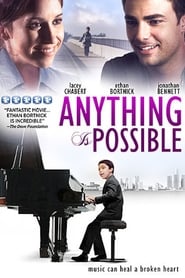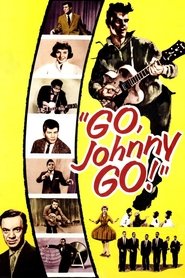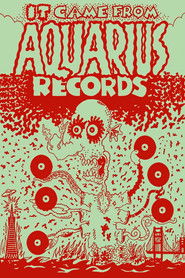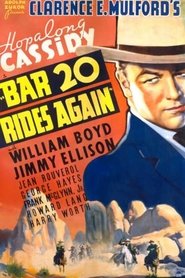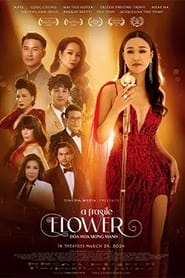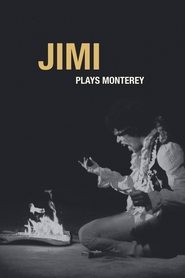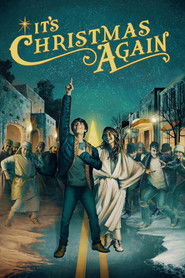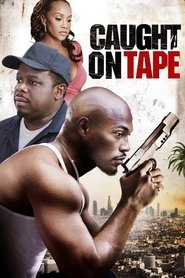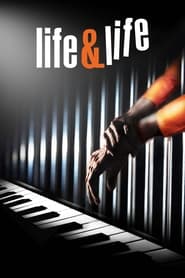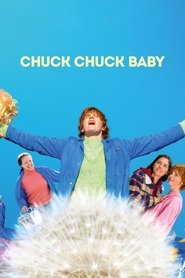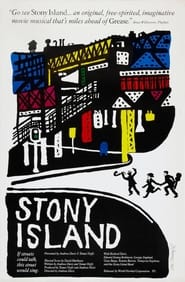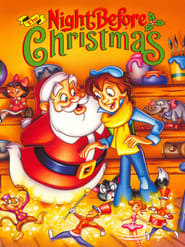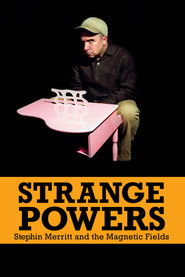Popular Music Movies on Tubi TV - Page 33
-
BTS: Global Takeover
2020
BTS: Global Takeover
2020
star 7.5Jin, Suga, J-Hope, RM, Jimin, V, Jungkook... This is BTS. The forefront of the k-pop revolution that is sweeping the world, BTS are the biggest boyband since The Beatles. Their high energy performances, thought provoking lyrics and trend setting style has set them apart from all other musicians as they continue to reinvent pop culture.But it wasn't overnight success for them. Their early years were plagued with hardship and setbacks– it seemed as though the world didn't want them to succeed... but they never gave up. This is their story. -
Shake, Rattle and Rock!
1956
star 4.6A TV star meets with opposition from adults who object to the opening of a rock 'n' roll palace for teens. -
Sister Tempest
2020
Sister Tempest
2020
Anne Hutchinson's troubled relationship with her missing sister is under alien tribunal. Meanwhile, her new roommate's mysterious illness causes her to go on a cannibalistic killing spree. -
The Girl from Chicago
1932
star 5.8An undercover government agent on a case in Mississippi meets and falls in love with a beautiful young woman who's being menaced by a local crime boss. -
Anything Is Possible
2013
Anything Is Possible
2013
star 6Ethan Bortnick plays the leading role as Nathan,a young boy who's separated from his mother when she goes missing during a trip to Japan to help after the tsunami. The movie explores issues like homelessness, military family life and adoption. Ethan co-wrote the music with Grammy award winning songwriter and producer, Gary Baker and will also score the entire film. Ethan will become the youngest actor to co-write the soundtrack and play the leading role in a feature film. When Army lieutenant, MARGARET PETERS (Lacy Chabert) goes missing during a tsunami rescue mission in Japan, back in Detroit, her son, NATHAN (Ethan Bortnick), discovers that his father GEORGE (Jonathan Bennett) isn't his biological father. Learning that Child Care Services could take him away, Nathan runs away before his father can explain. While George goes on a frantic search, Nathan takes to the streets of Detroit where he meets CAPTAIN MILES, a homeless Iraqi war veteran. Captain Miles takes the boy under his ... -
Go, Johnny, Go!
1959
Go, Johnny, Go!
1959
star 5.8Rock-n-roll promoter Alan Freed holds a talent search to develop a new rock star, then must find the elusive, mystery contestant (Jimmy Clanton) who doesn't know he has won. -
Shakira: Oral Fixation Tour
2006
star 7.7Grammy-winning international superstar Shakira offers up a series of energetic performances in this compilation of footage from her 36-country "Oral Fixation" tour, filmed live in 2006 and 2007. Songs include "La Tortura," featuring Alejandro Sanz, "Whenever, Wherever," "Underneath Your Clothes," "Inevitable," "Don't Bother," "Hey You" and more. Wyclef Jean joins Shakira for a rousing performance of her smash hit "Hips Don't Lie." -
It Came From Aquarius Records
2022
star 8IT CAME FROM AQUARIUS RECORDS tells the story about the San Francisco based independent record store, Aquarius Records. Having closed in 2016 after 47 years, this small apartment-sized store championed local, underground, independent, and challenging music to the masses - most memorably with their infamous bi-weekly, college essay-length, new-release lists. Six years in the making, interviewing collectors, musicians, and store owners, the film has a very personal angle, with lots of behind-the-scenes footage (and drama) that shows both the joy and excruciating stress that comes with running — and closing — a store like this, helped in no part by the changing city around them. -
Bar 20 Rides Again
1935
Bar 20 Rides Again
1935
star 5Cattle rustler Nevada dreams of living like an emperor in the West. Hoppy and the Bar 20 boys aim to put an end to his dream. -
A Fragile Flower
2024
A Fragile Flower
2024
star 7Thach Thao is a beautiful girl with an angelic beautiful voice, and the first time she sang on stage at Itango Club, Thao immediately caught the eye of a music producer named Son. Then, she was invited to cooperate in filming a music video called "A Fragile Flower". After the music video was released, Thach Thao became a renowned singer. She is beautiful, talented, so many men love her. Then, which man will Thao's heart belong to? And what is the dangerous disease that she encountered? -
Jimi Plays Monterey
1987
Jimi Plays Monterey
1987
star 7.4Jimi Hendrix's debut American set at 1967's Monterey Pop Festival is generally considered one of the most radical and legendary live shows ever. Virtually unknown to American audiences at the time, even though he was already an established entity in the UK, Hendrix and his two-piece Experience explode on stage, ripping through blues classics "Rock Me Baby" and Howlin' Wolf's "Killing Floor," interpreting and electrifying Bob Dylan's "Like a Rolling Stone," debuting songs from his yet-to-be-released first album and closing with the now historic sacrificing/burning of his guitar during an unhinged version of "Wild Thing" that even its writer Chip Taylor would never have imagined. Hendrix uses feedback and distortion to enhance the songs in whisper-to-scream intensity, blazing territory that had not been previously explored with as much soul-frazzled power. -
It's Christmas Again
2022
It's Christmas Again
2022
star 3.3Jake wants nothing more than to spend his Christmas vacation with his girlfriend Abbey. So when Abbey volunteers for her church’s Christmas play, Jake is ready to skip Christmas this year until an unexpected turn of events lands him in a field outside Bethlehem on the night Jesus was born. While on his journey with the shepherds to find the promised Messiah, Jake discovers the true meaning of Christmas. -
Caught on Tape
2013
Caught on Tape
2013
star 6.2A young boy uses his video camera that he got for his birthday to spy on his mother's boyfriend, who's plotting a crime. Mix in a nosy neighbor, jealous fiancé, shady maintenance man, a UPS driver with a heist gone horribly wrong and you're bound to have some drama. -
Life & Life
2021
Life & Life
2021
LIFE & LIFE tracks the journey of Reggie Austin as he redeems his life following a murder conviction 40 years ago. The film looks at Austin’s effect on his fellow inmates and his efforts to reconnect with his family, as well as the parole and sentencing of prisoners ultimately revealing the steep and dangerous hill ex-prisoners must climb upon release to create a positive future. -
David Bowie & The Story of Ziggy Stardust
2012
star 7BBC documentary telling the story of how David Bowie arrived at one of the most iconic creations in pop history - Ziggy Stardust - with contributions from colleagues and famous fans. -
Who Killed Nancy?
2009
Who Killed Nancy?
2009
star 5On October 12th, 1978, New York Police discovered the lifeless body of a young woman, slumped under the bathroom sink in a hotel room. She was Nancy Spungen, an ex-prostitute, sometimes stripper, heroin addict, and girlfriend of Sex Pistols' bassist Sid Vicious. -
Chuck Chuck Baby
2024
Chuck Chuck Baby
2024
star 7Helen's mundane life at the chicken factory takes an unexpected turn with Joanne's return. They were each other's secret teenage passion. As they fall in love, Helen's zest for life returns but Joanne faces something darker from her past. -
Stony Island
1978
Stony Island
1978
star 8Richie Bloom, the only white kid on the block, forms an R&B band with his best friend, Kevin. With the help of their mentor, aging sax legend Percy, they pull together a funky supergroup. Despite few resources and heavy losses this resilient group of dedicated musicians, armed only with wit, sleight of hand and outrageous Chicago bravado must come together to finally make their smash debut. -
The Night Before Christmas
1994
star 6A kind hearted, young orphan boy and his loyal cat discover the true spirit of Christmas in this delightfully animated Yuletide tale of musical, magical holiday cheer! -
Strange Powers: Stephin Merritt and the Magnetic Fields
2011
star 6.8Ten years in the making, Strange Powers is an intimate documentary portrait of songwriter Stephin Merritt and his band the Magnetic Fields. With his unique gift for memorable melodies, lovelorn lyrics and wry musical stylings that blend classic Tin Pan Alley with modern sounds, Stephin Merritt has distinguished himself as one of contemporary pop's most beloved and influential artists.
 Netflix
Netflix
 Amazon Prime Video
Amazon Prime Video
 Apple iTunes
Apple iTunes
 Apple TV Plus
Apple TV Plus
 Disney Plus
Disney Plus
 Google Play Movies
Google Play Movies
 Paramount Plus
Paramount Plus
 Hulu
Hulu
 HBO Max
HBO Max
 YouTube
YouTube
 fuboTV
fuboTV
 Peacock
Peacock
 Peacock Premium
Peacock Premium
 Amazon Video
Amazon Video
 The Roku Channel
The Roku Channel
 AMC+
AMC+
 Kocowa
Kocowa
 Hoopla
Hoopla
 The CW
The CW
 Vudu
Vudu
 Starz
Starz
 Showtime
Showtime
 PBS
PBS
 Pantaflix
Pantaflix
 FXNow
FXNow
 Tubi TV
Tubi TV
 Kanopy
Kanopy
 Comedy Central
Comedy Central
 Crunchyroll
Crunchyroll
 Microsoft Store
Microsoft Store
 Redbox
Redbox
 Sun Nxt
Sun Nxt
 ABC
ABC
 DIRECTV
DIRECTV
 Crackle
Crackle
 Fandor
Fandor
 Plex
Plex

